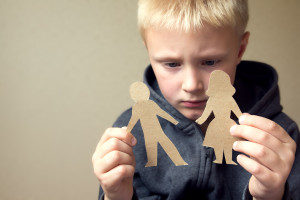Popular myth perpetuates the misnomer that mothers have more rights than fathers in divorce and child custody. This is simply not true. California law seeks to treat mothers and fathers equally unless a parent surrenders their rights or mitigating circumstances warrant different arrangements. Knowing a father’s rights in California is critical to avoiding serious mistakes during custody and other arrangements.
Attorney Judy L. Burger is a Certified Family Law Specialist in California who can explain more about a father’s rights and help you be treated fairly in child custody negotiations. Here are some important elements of a father’s rights in California.
Child Custody, Support, and Visitation and California Law
According to California Law Family Code Section 3020(b), children are to have “… frequent and continuing contact with both parents after the parents have separated or dissolved their marriage, or ended their relationship, and to encourage parents to share the rights and responsibilities of child-rearing in order to effect this policy, except when the contact would not be in the best interests of the child…”
Section (c) states, “… a court’s order regarding physical or legal custody or visitation shall be made in a manner that ensures the health, safety, and welfare of the child and the safety of all family members…”
Custody
Fathers should never assume that mothers automatically receive primary custody of a child. California law upholds equal rights for a legally established father to have primary custody of his child. He may also be eligible to receive child support from the mother.
Support
Non-custodial parents typically must pay child support according to state guidelines and the family’s court’s orders. This support agreement is calculated by reviewing both parents’ income, age, and other relevant factors. As stated earlier, fathers can be custodial parents and receive child support from a child’s mother.
Visitation
Fathers enjoy equal visitation rights to their children in California when there are no mitigating factors. Visitation agreements may include modified schedules for summer or holidays that even provide non-custodial parents with more time. In most cases, it is illegal for a custodial parent to prevent the non-custodial parent from visiting with their child.
Establishing Paternity in CA
Establishing your paternity is vital to enjoying your rights as a father. No custody, support, or visitation agreements including you may be established without this legal declaration. Married parents can establish this without legal action. Unmarried fathers may require a court action establishing their paternity. Family Law Attorney Judy Burger can help you legally establish paternity in California.
Declaration of Paternity
Unmarried parents may both complete and sign a Declaration of Paternity. This has the same status as a court order to establish paternity and doesn’t require going to court.
Petition to Establish a Parental Relationship
When there is a dispute between the birth mother and a potential father about paternity, the father may file a Petition to Establish a Parental Relationship and formally open a parentage case before the court. A family law judge will review evidence presented in court and establish or deny paternity. A birth mother may also file this petition to establish the parentage of her child’s father in order to secure child support.
Exercise Your Father’s Rights in CA
Fathers have the right to be part of their children’s lives in California. Don’t surrender your rights or otherwise accept a poor custody and visitation agreement as a father. The law guarantees you equal treatment to enjoy parenthood even after a separation or divorce. California Certified Family Law Specialist Judy Burger can explain more about fathers’ rights and negotiating equitable custody, support, and visitation agreements in a confidential consultation.
We have eight offices across California, including in San Francisco, Ventura, Silicon Valley, Oxnard, and Santa Barbara. Contact us today to schedule a free initial consultation to learn more.








